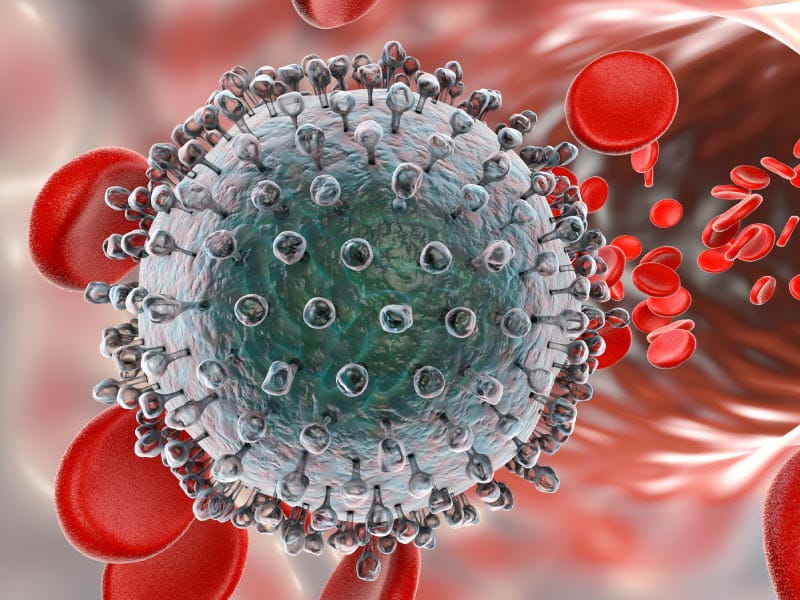HIV, hepatitis C combination boosts heart attack risk as people age
By American Heart Association News

As people being treated for HIV get older, those who also have untreated hepatitis C face a much higher risk of having a heart attack than if they had HIV alone, new research finds.
In a population already at high risk for heart disease, the risk of having a heart attack grows with every decade of life when both viruses are present, the study found. The findings were published Wednesday in the Journal of the American Heart Association.
"HIV and hepatitis C coinfection occurs because they share a transmission route," senior author Keri N. Althoff said in a news release. Althoff is an associate professor in the department of epidemiology at Johns Hopkins Bloomberg School of Public Health in Baltimore. "Both viruses can be transmitted through blood-to-blood contact."
The greater heart attack risk may be "due in part to the inflammation from the chronic immune activation of two viral infections," Althoff said.
Antiretroviral therapies have greatly increased the life span of people with HIV since their introduction in the 1990s. But even with treatment, studies show heart disease risk for people with HIV is at least 50% greater than it is for others.
Using health data for 23,361 people in the North American AIDS Cohort Collaboration on Research and Design from 2000 to 2017, researchers compared heart attack occurrence between people with HIV alone and those who also tested positive for hepatitis C. All participants had initiated antiretroviral treatment for HIV and were 40 to 79 years old at the time of enrollment. One in 5 also was positive for hepatitis C. Participants were followed for an average of four years. Results were analyzed for each decade of age.
Overall, for every 10 years of increasing age, heart attacks rose 30% for people with HIV alone, compared to 85% for those co-infected with hepatitis C.
The amount of increased risk varied according to a person's other heart disease risk factors. People who also had high blood pressure faced triple the risk for a heart attack. Those who smoked faced a 90% greater risk. And those with Type 2 diabetes had a 46% greater risk.
HIV-associated risk factors also contributed to the greater risk for heart attacks. In those who had low levels of CD4 immune cells – a marker for greater immune system dysfunction – heart attack risk increased 40%. Those who took protease inhibitors, a type of antiretroviral therapy linked to metabolic conditions, faced a 45% increased risk for heart attacks.
"People who are living with HIV or hepatitis C should ask their doctor about treatment options for the viruses and other ways to reduce their cardiovascular disease risk," lead study author Dr. Raynell Lang said in the release. Lang is an assistant professor in the department of medicine and community health sciences at the University of Calgary in Alberta, Canada.
More research is needed on cardiovascular disease prevention, causes and treatment in people with HIV, according to a 2019 American Heart Association scientific statement. That report said about 75% of people with HIV are older than 45, when heart disease risk typically increases.
"Our findings suggest that HIV and hepatitis C co-infections need more research, which may inform future treatment guidelines and standards of care," Althoff said.
The study lacked information on diet, exercise and family history of chronic health conditions. It also includes data from a time before the availability of current hepatitis C treatments, which could affect heart attack risk. The authors note that results may not be generalizable to people living outside the United States.
"Because effective and well-tolerated hepatitis C therapy was not available during several years of our study period, we were unable to evaluate the association of treated hepatitis C infection on cardiovascular risk among people with HIV. This will be an important question to answer with future studies," Lang said.
If you have questions or comments about this American Heart Association News story, please email [email protected].





